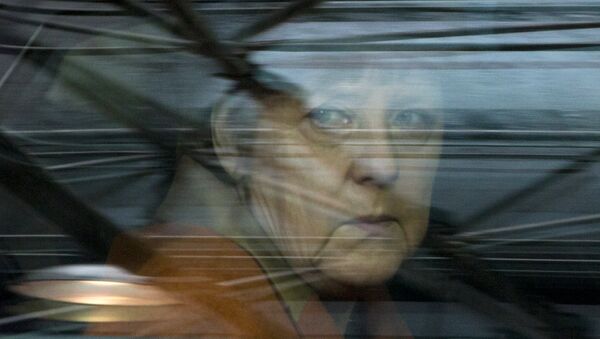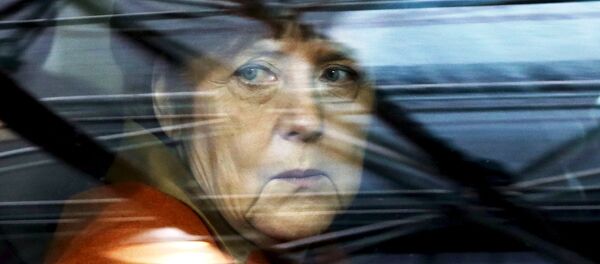In its editorial, titled "Punishment for Merkel," the newspaper specifically pointed to the "unprecedented results" of the fledgling right-wing party Alternative for Germany (AfD) during the elections in Baden-Wuerttemberg, Rhineland-Palatinate and Saxony-Anhalt.
Senior German politicians should see the AfD's big success in the elections as "the writing on the wall" in the run-up to the country's 2017 parliamentary elections, according to El Pais.
"There is already a political force in Germany which acts under populist slogans and which has enough strength in order to recommend that the government should adopt this or that agenda," El Pais said, referring to the AfD.
"A complex political scenario is unfolding in Germany, where Merkel's Christian Democrats will have to face the consequences of the largest humanitarian crisis in Europe since the Second World War," El Pais pointed out, calling for more joint efforts among the EU countries to resolve the deadlock.
El Pais was echoed by William Paterson, an honorary professor of German and European Politics at Aston University in the UK. In an interview with Sputnik, he described the AfD coming first in the elections in Baden-Wuerttemberg, which was considered a Christian Democratic Union stronghold, as "a possible goodbye for Chancellor Merkel."
"I think that she will finally decide not to run again in the 2017 general elections in Germany, so it's potentially the beginning of the end for Merkel," he said.
He also warned that even if Merkel does run in the elections, things will almost certain go wrong for her if she fails to do something about the current migration crisis in Germany.
"If the situation does not improve and the Turkish solution does not work, Merkel could be in a bit of difficulty by the beginning of next year," he said.
Merkel has repeatedly been slammed for her open door policy as the growing influx of refugees has raised security concerns among the local population.
However, despite opposition from the electorate and a number of German politicians, the Chancellor has refused to close the country's borders and set a limit on the number of newcomers.





